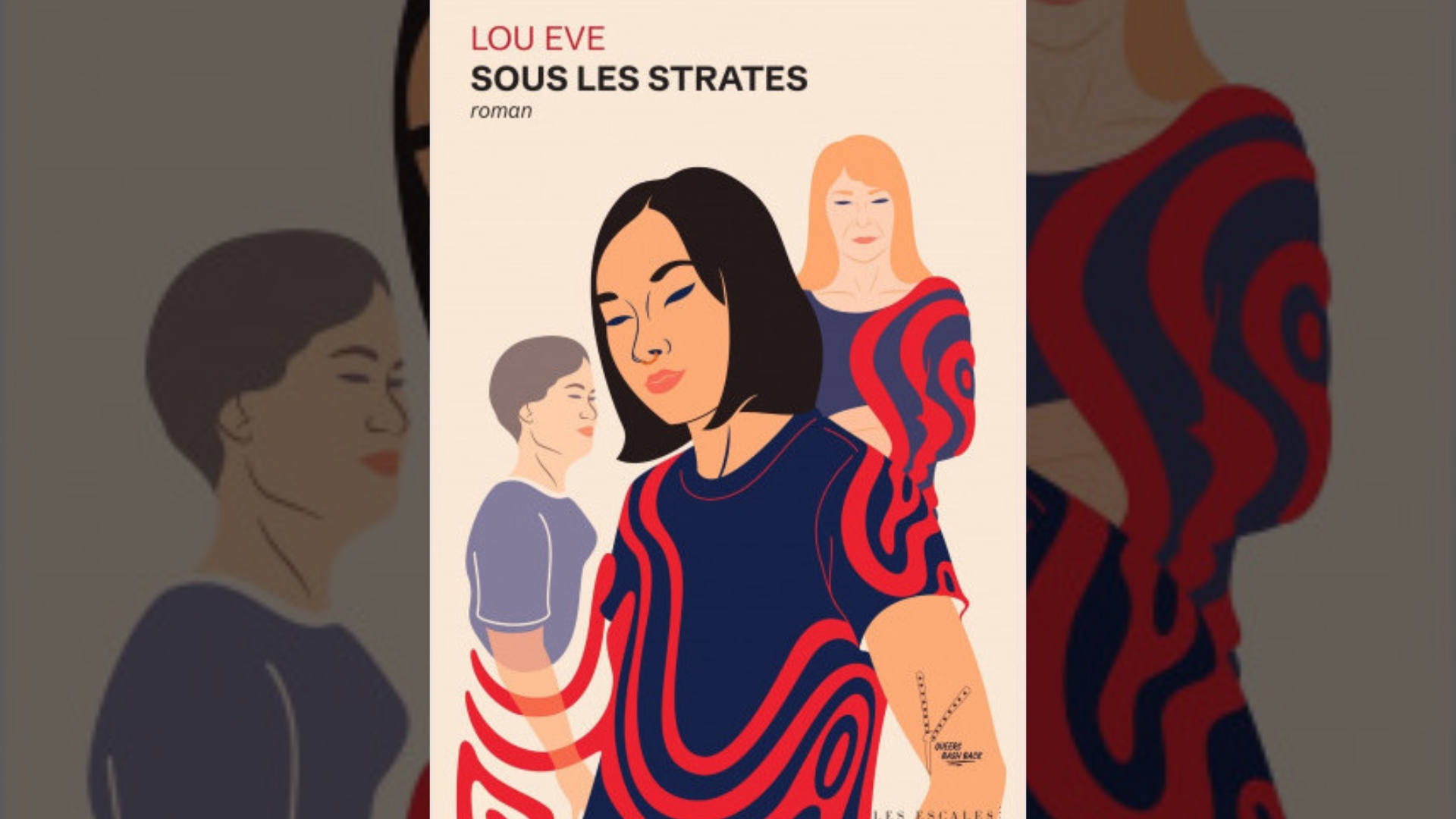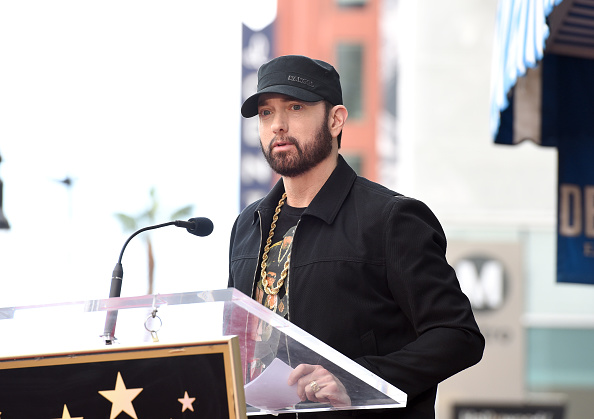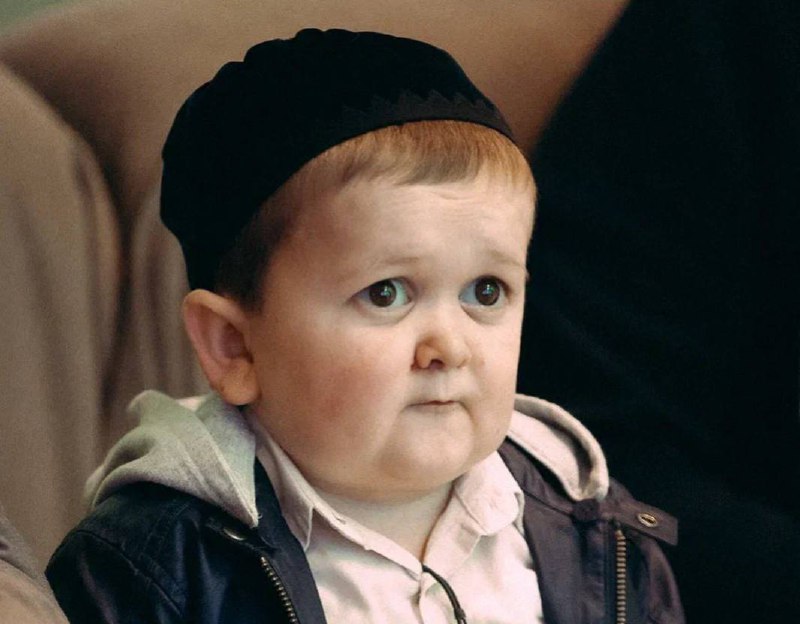To miss. Lou Eve, you’ve been holding out for several years an Instagram account where you share your thoughts on decolonial, anti-capitalist and feminist topics. In 2021 you participated in the collective essay “Our radical loves” (Les Insolentes Edition). How did you come to start writing a novel?
Lou Eva. With my Instagram account I was quite used to creating popular works and producing my thoughts in the form of an essay. I wanted to express myself differently on these topics and move away from the argumentative essay, a form to which I was very accustomed since my studies (in Political Science, ed.). And the narrative form allowed me to address more topics than in an essay.
I wanted to mention the very nice title of your novel, “Sous les Strates”. Was this your first idea and what does it mean?
It wasn’t the first choice. We initially started with the editors on “The Monster Reborn.” We wanted to focus on the transformation, on the mutation of Linh (the main character of the novel, ed.). In the end we changed because the title was too close to that of Tal Madesta’s book, released this year (“The end of the monsters”, ed.).
From the beginning I had thought about the idea of layers and the theme of interstices, of what lies between multiple spaces. The layers reflected well the idea of all these consecutive layers being part of Linh. I wanted to invite readers to come and understand them, to discover who Linh is and everything that revolves around her. There’s really this idea of looking underneath and accepting the imperfection of your story.

Transracial adoption is a system in which the voices of the people who give up their children for adoption are never heard.
The novel focuses on the journey of Linh, a transracial adoptee who reconstructs her story after making contact with her parents. Three voices overlap: Linh, her adoptive mother Françoise and her biological mother Minh. Did this choice of a three-voice non-linear narrative quickly impress you?
Yes, this structure came quite naturally. It was obvious to me that Linh should be at the center of the narrative. She is the only one speaking in first person. But I wanted to make other voices heard too, particularly Minh’s. Because it’s a novel about transracial adoption and all that entails. And it’s a system where we never hear the voices of people who give their children up for adoption. I wanted Linh’s voice to be heard as much as Françoise’s. Even if she is an adopted character, originally from a northern country and in fact more listened to, these two points of view were necessary to understand Linh’s construction.
How did you find the balance between these three voices?
It wasn’t easy. Since Linh is adopted, a whole part of her story is missing. There are many pieces missing from her puzzle. Linh is my imaginary alter ego. As an author, it was difficult for me to put the whole story together. I grew up in the south of France, very far from my culture of origin. It was difficult to imagine what the life of Minh’s character could be like, without falling into miserability and without giving in to fantasy, despite having a claim to precision. At some point I had to accept that it would always be a fantasy. It was easier to transcribe Linh’s emotions.
With the form of autofiction I was able to enter into the depths, the emotions, the self and a personal journey.
You are a transracial adoptee of Vietnamese descent. The question of the autobiographical part arises. Can we say that your book is autofiction?
Yes, it’s autofiction. I did some research for this book, particularly on the history of Vietnam. And at the same time, there are many things in this story based on real events. The form of autofiction came naturally to me. It allows a form of protection towards the people who will read me, including my loved ones. And at the same time I don’t distance myself completely from the object, from what I have to tell. I was able to enter into the depths, the emotions, the self and a personal journey.
The central theme of your novel is the search for oneself. Do you feel like you were able to convey things through fiction that you wouldn’t have been able to convey in a political essay?
I don’t know if I could have been so relevant and right. For example, there is a moment in the novel where an argument erupts between Linh and Françoise, about Françoise’s racism, her whiteness, her misunderstanding of what Linh is going through. It’s an intense scene, it’s in the register of emotions. There is a lot of anger. This is something I could have put into words in an essay, the fact that white parents who adopt racialized children from abroad are not in control of the matter, when their children go through racist experiences. But I wanted to tell it from a more emotional point of view.
Linh has many things to criticize about her parents, but that doesn’t stop her from loving them.
Your novel evokes strong themes, such as dual culture, racism or sexual orientation. Can we call it intersectional?
For me it’s obvious. When I mentioned the Linh layers, it’s this too. All these layers of life, all these experiences that she accumulates that make her the person that she is. But instead of intersections I see rather messy, overlapping layers. And in the end it makes Linh readable, at least I hope so! But in fact Linh is a lesbian, racialized, and adopted woman. At the end of the novel, she has changed. What she’s telling readers is that she’s here, she’s going to live, and it’s okay to have all these imperfections. She accepts all parts of herself. She found her place.
You tackle the topic of domestic violence with great accuracy, through the perspective of the character who suffers it.
To be completely honest, when I met my biological mother, she told me this. This is not something I created. As an author, I studied how domestic violence was handled in Vietnam. But I also did my thesis research on this topic, so I master this topic. The difficult thing was not to fall into caricature, not to force the discussion.
It’s a reality in Linh’s journey, learning that he played a huge role in giving up. Other criteria were poverty, having many children on one income and alcoholism. It was really hard to say, this is the reality, it happened. But that’s not always the case. I didn’t want readers to make generalizations about Vietnamese people. I juggled between research work, collected words and my feelings.
“Transracial adoption is a kind of market, where women from the North come to help themselves in Southern countries and it’s not right.”
Do we perceive an underlying message in your novel, a criticism of transracial adoption?
I tried to give complexity to the trajectories and stories of the characters. There is always a nuance to add. Linh has a lot to criticize about her parents, but that doesn’t stop her from loving them. She is not incompatible. This is what I meant. It is possible to be transracially adopted and love your parents even if they are racist.
More generally, I think that transracial adoption is a kind of market, where Northern women come to help themselves in Southern countries and this is not right. It is a system that has been dying for 25 years. There are fewer and fewer adoptions of this type. On the other hand, it is important to highlight the voice of adopted people. We always say “adopted children” but they are also adults, who have many things to say. And it’s not them we hear. In any case, I think it is possible to make this topic complex, while at the same time conveying a political message.
Were you able to develop the different themes that were important to you as you wanted?
For a first novel I am satisfied. There are many topics covered. In the future, I’d like to delve deeper into some of them, especially Linh’s lesbian journey. This is something that comes towards the end of the novel. I’ve talked theoretically about lesbian travel coming late, but why not talk about this topic again in the form of fiction, in more depth? In any case I would like to continue writing, perhaps autofiction.
Do you like our articles? You’ll love our newsletters! Sign up for free on this page.
Source: Madmoizelle
Mary Crossley is an author at “The Fashion Vibes”. She is a seasoned journalist who is dedicated to delivering the latest news to her readers. With a keen sense of what’s important, Mary covers a wide range of topics, from politics to lifestyle and everything in between.




